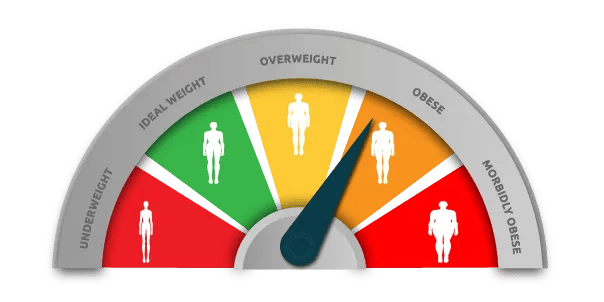Menopause Weight Loss Plan
At The Slimming Clinic, we understand that menopause looks different for everyone, which is why we have developed our unique menopause weight loss plan to help get your weight gain under control in the safest, healthiest way possible.
Introducing Our Menopause Weight Loss Plan
Designed exclusively for women navigating menopause, our Menopause Weight Loss Plan offers a comprehensive, personalised solution to tackle weight gain and support your overall well-being. With expert medical care and advanced health insights, this programme is your path to sustainable weight loss and better health.
- Specialist Medical Care: Gain direct access to an experienced, GMC-registered Doctor who specialises in menopause-related weight management. Your plan includes expert guidance on a range of weight loss medications tailored to your unique needs.
- Comprehensive Health Assessment: This programme includes a detailed blood test to check vital health markers, including cholesterol, digestive function, and nutritional health. We go beyond weight loss to support your whole-body wellness.
- Body Composition Analysis: Understand your progress with a detailed body composition analysis, giving you insights into fat loss, muscle retention, and overall body health.
- Personalised Support: Receive bespoke meal planning and targeted supplements designed specifically for those experiencing hormonal changes during menopause.
- Dedicated Patient Support Executive: You’ll be assigned a dedicated Patient Support Executive to ensure your journey is smooth and supported every step of the way.
- Exclusive Community Access: Enjoy free membership to The Slimming Club, our supportive and motivating weight loss community where you can connect with others on the same journey.
- Convenience and Value: All medications, supplements, and health assessments are delivered with free P&P, offering you a hassle-free experience.
To get started just book an appointment with one of our GMC-registered doctors today and take the first step to a healthier more confident you.

- Specialist Medical Care: Gain direct access to an experienced, GMC-registered Doctor who specialises in menopause-related weight management. Your plan includes expert guidance on a range of weight loss medications tailored to your unique needs.
Flexible Programme Options
We offer both 3-month and 6-month Menopause Weight Loss options to fit your lifestyle and goals. Whether you're seeking short-term results or long-term transformation, we have a plan designed for you.
Why Choose the Menopause Weight Loss Plan?
This programme is crafted for women who are ready to take control of their health during and after menopause. With our expert-led care and advanced health insights, you’ll have everything you need to feel empowered, supported, and successful.
Ready to Take the Next Step?
Experience the difference of our Menopause Weight Loss Programme today. Your journey to a healthier, more confident you starts here.
Want To Order Online?
Choose from our tablets or injections plans below or book an online doctor appointment to get expert guidance on the option most suitable for you.
Am I Menopausal? What Are The Symptoms?
There are a number of tell-tale symptoms of the menopause and the first is your periods stopping, or there being more time between periods.
When you are entering the menopause, or are perimenopausal, you may get some, or all, of these symptoms:
- Hot flushes
- Night sweats
- Difficultly sleeping
- Reduced libido
- Problems with your memory or concentration
- Headaches
- Mood changes – anxiety or low mood
- Heart palpitations
- Joint pains, aches or stiffness
- Reduced muscle mass
- Recurring UTIs
- Weight gain
Ready to start your menopause weight loss programme?

Why Does The Menopause Cause Weight Gain?
Menopause causes weight gain in so many women because of the drop in oestrogen levels.
Our fluctuating hormone levels can affect the way that our bodies are storing fat and the way our body manages food can also change during menopause, meaning we burn less calories than we did pre-menopause.
The weight we gain during menopause also doesn’t distribute across our bodies in the same way that it did before either.
Where pre-menopause, your weight would more-or-less evenly distribute across our whole body, when we enter the menopause, our weight tends to gather around the middle as visceral fat, and crucially, around our vital organs, which can prove to be dangerous.
Are you finding your weight creeping up in the perimenopause or menopause? Get the expert help you need with us at The Slimming Clinic.

Check If You're Eligible
In order to be considered for this programme you must have a BMI of 27 or above. Check your BMI using our BMI calculator:













